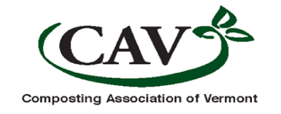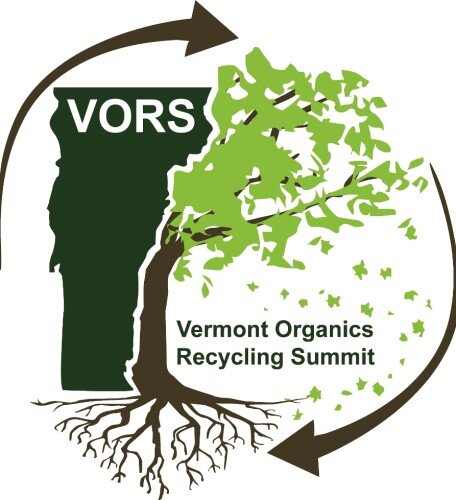The 15th Annual Vermont Organics Recycling Summit (VORS) brought together participants from Vermont, New England, and around the nation. VORS is hosted by the Composting Association of Vermont (CAV) and the Vermont Agency of Natural Resources (ANR), Department of Environmental Conservation. The virtual event was held May 3-7, in conjunction with the US Composting Council’s International Compost Awareness Week, and qualified for Professional Development Hours from the Council.
With the theme, Grow, Eat…COMPOST…Repeat, VORS offered 12 sessions and four video tours, and featured over 40 presenters. More than 240 people registered to attend. CAV is pleased to announce that session recordings are now posted on the Summit webpage.
The event was opened by Peter Walke, Commissioner of the VT Department of Environmental Conservation and the “State of the State,” presented by Josh Kelly, Materials Management Section Chief, ANR. The Keynote was given by David Montgomery, a MacArthur Fellow, University of Washington professor of geomorphology, and author of several books, including, Bringing Our Soil Back to Life.
Day Two started with Food Scrap Composting Success: Stories From the Field, bringing together compost operation representatives from around the state. Compostables, Disposables, and Durables discussed food service options. Rounding out the day’s sessions was Food Scrap Diversion Strategies for Multi-Unit Complexes. Day Three focused on the nutrient benefits of compost with Connecting Farms to Communities to Close the Nutrient Loop, followed by Composting and Heat Recovery for the VT Phosphorus Innovation Challenge and finishing with Improved Compost Fertility Characteristics: Thermophilic and Vermicompost Blends.
Soil Builders: Compost-Based Best Management Practices for Erosion Prevention & Sediment Control kicked off day four. This session was part of CAV’s Soil Builders project developed to provide compost-related eco-literacy for Lake Champlain Basin decision-makers, professionals and advocates. It was followed by Organics Diversion Options in Chittenden County and a session on the US Composting Council’s new Model Zoning Template. The final day of the Summit began with Engaging a New Generation of Organics Managers, developed and presented by teachers, middle school students and ECO AmeriCorps members. A VORS tradition, the Haulers’ Roundtable, was the last session of the Summit.
A new, highly popular component of this year’s Summit featured video tours. Tours of Vanguard Renewables’ New Anaerobic Co-digester in Salisbury, Chittenden Solid Waste District’s Organic Diversion Facility, Rich Earth Institute located in Brattleboro, and Black Dirt Farm located in the Northeast Kingdom were presented and followed by discussion.
Stated Cathy Jamison, ANR Solid Waste Program Manager, “Vermont continues to be a leader in food scrap management around the country. VORS reflects this with its excellent caliber of presenters, engaging sessions, and diverse participants.”
This year’s VORS sponsors included: Community Bank, EcoProducts, Vermont Natural Ag Products, Inc., Addison County Solid Waste Management District, Agrilab Technologies, Ecopixel, Naturcycle, Vermont Department of Environmental Conservation EcoAmeriCorps Program, and the Vermont Produce Program.
The Composting Association of Vermont advances the production and use of compost as vital to soil health through practices that contribute to water quality, plant vigor, and environmental resilience. CAV demonstrates the value of compost through education, policy, outreach, and partnerships to reduce waste, capture energy, and create jobs. Learn about becoming a CAV member.























